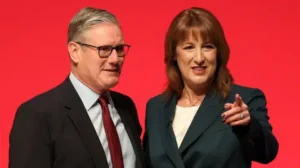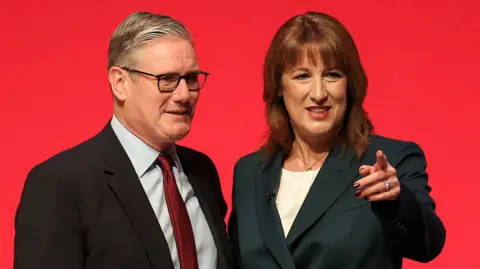In a recent statement, Prime Minister Sir Keir Starmer highlighted the alarming discrepancy in the treatment of women in politics compared to their male counterparts. He expressed a growing concern regarding the disproportionate levels of criticism and abuse faced by women in public life, emphasizing that it is time for society to acknowledge this persistent issue. Starmer’s remarks come at a critical juncture in British politics, where the participation of women has been gaining momentum, yet their experiences often remain overshadowed by marginalization.
The Prime Minister’s comments were notably prompted by a statement made by Rachel Reeves, who has made history as the UK’s first female Chancellor. In an interview with The Times, Reeves candidly expressed her frustration with the “mansplaining” she often encounters about her role, stating, “I’m sick of people mansplaining how to be chancellor to me.” This pointed remark underscores the ongoing challenges women face in leadership, even as they break through long-standing barriers.
Reeves, preparing to deliver her second Budget, displayed a strong resolve in her approach, declaring that she has “seen off a lot of those boys before and I’ll continue to do so.” This determination resonates with many women who find themselves navigating a political landscape often dominated by male perspectives. Starmer echoed Reeves’ sentiments during his discussion, reinforcing his belief that women in politics receive significantly more criticism and abuse than men do. His acknowledgment extends beyond politics, indicating a recognition of the broader societal attitudes that perpetuate gender disparities.
The Prime Minister also expressed his pride in appointing Rachel Reeves to her historic role and reiterated his commitment to supporting women in leadership positions. In a more personal note, he expressed a desire to welcome back Angela Rayner, the former Deputy Prime Minister, who stepped down from her position after a tax-related issue. Rayner, regarded as a prominent voice within the Labour Party, has showcased remarkable resilience throughout her political journey, and Starmer’s remarks suggest a deep respect for her contributions to the party.
In a candid conversation with reporters, Starmer referred to Rayner affectionately as “Ange,” illustrating a camaraderie and mutual respect within the party. He stated, “I’m friends with Ange and I like Ange a lot and we talk a lot.” This interpersonal dynamic may play a crucial role in fostering a unified Labour front moving forward, especially as the party navigates the complexities of public perception and internal politics.
Starmer’s recognition of Rayner as an embodiment of social mobility in the UK is noteworthy. He highlighted her journey from a challenging background to becoming a key political figure, encapsulating the undying spirit of determination and resilience. This perspective is particularly important in a political environment where representation matters; recognizing the struggles and triumphs of female leaders can inspire future generations.
Furthermore, in an interview leading up to this discourse, Rayner herself did not dismiss the possibility of a return to frontline politics, demonstrating her enduring commitment to the Labour movement. She mentioned, in discussions with the Daily Mirror, that she hasn’t “gone away,” hinting at her readiness to re-engage with the political sphere when the time is right.
In conclusion, the acknowledgment from Prime Minister Sir Keir Starmer regarding the abuse faced by women in politics reflects a growing awareness and call for change within the political landscape. The resilience demonstrated by leaders like Rachel Reeves and Angela Rayner serves as a catalyst for promoting gender equity in governance and offers hope for a future where women can thrive without the burden of disproportionate criticism and scrutiny. Such discussions are imperative as the UK navigates its political landscape, continually striving for inclusivity and representation.











